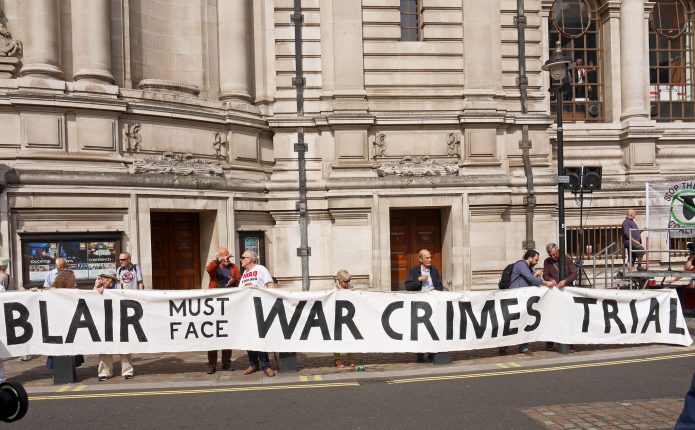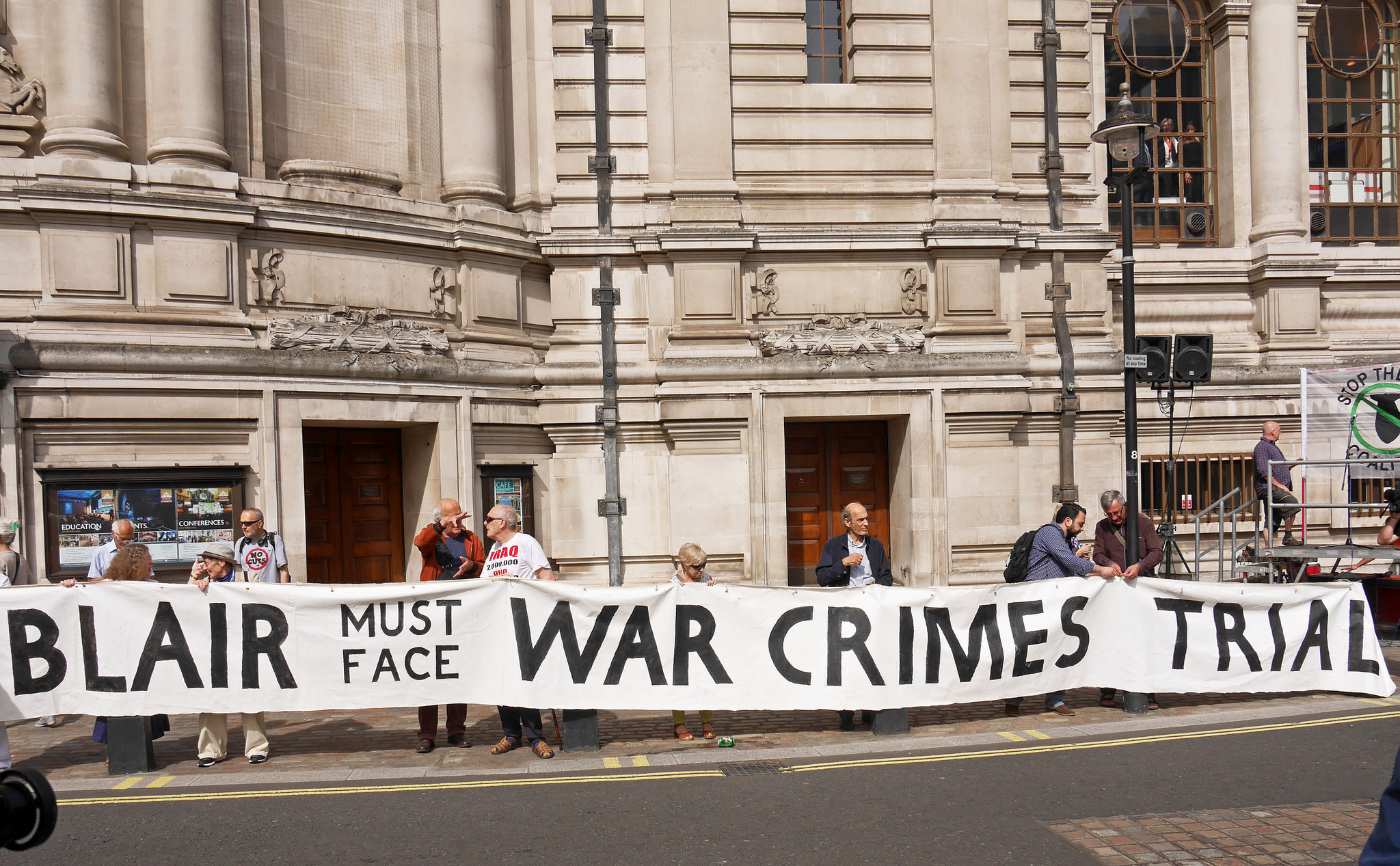
(Photo: Flickr / Alan Denney)
The two things that are important about the Chilcot report, Phyllis Bennis told South African radio, are one, that it even occurred, and two, that it legitimizes the critiques of the 2003 Iraq invasion.
All United States government agencies have refused to seriously investigate war crimes in the context of the Iraq war and the lies on which the war was launched. So the fact that the inquiry even took place is hugely important, Bennis said.
The report is also important because it confirms what we have said and have been saying, before the war, during the war, and today, Bennis said. The critiques that were legitimized by the report include that there was no need to go to war, the weapons of mass destruction didn’t exist, the threats were made up or exaggerated, and the British under Blair would do anything the U.S. wanted regardless of legitimacy or international law, Bennis said.
The report’s major weakness, Bennis points out, is that there is no accountability attached to it.
There was a careful decision, Bennis said, to not explicitly say that Blair lied, that he violated both domestic and international law, and that he should be put on trial in a competent court.
“Without accountability, there’s no real need for any future Tony Blair to do anything different,” Bennis said. She explained how we have the same problem domestically in the United States, where black men are shot to death by police without cause and that there is no accountability for their actions — no one goes to jail. “The same applies to war crimes,” Bennis said.
She goes on to cite examples of human rights abuses and war crimes committed by the Israeli army with no consequences. The billions of U.S. dollars in aid keep pouring in; the protection in the United Nations by the U.S. doesn’t change, she said.
The Chilcot report confirmed that Blair’s own advisers told him there would be international law violations that he needed to worry about, Bennis said. But he continued on, rightly believing, that even if there were violations he would never be held accountable, Bennis said.
“Until someone like Tony Blair faces fail time,” Bennis said, “there will be no sense from future world leaders that they need to be accountable to either public opinion or their understanding of international law.”
…
